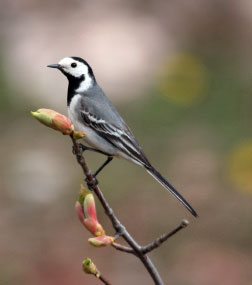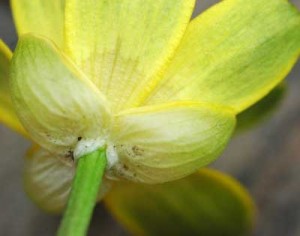Climatic debt

Butterfly Conservation UK and the Centre for Ecology and Hydrology have been involved in the monitoring the status of butterflies through various citizen science schemes*. UK butterflies (and indeed, birds) are probably the best-studied wildlife groups thanks to the dedication of an enormous workforce of highly skilled and committed volunteer recorders. Butterflies and birds have been observed and recorded in detail for many, many years and these detailed records and counts yield an invaluable resource of information for the analysis of population change(s).
A recent report indicates that some 70% or more of our butterfly species are in decline and that the geographical distribution of many has contracted.
Inspection of the data suggests that species like the black and white pied flycatcher have halved in number. There is also the suggestion that this decline is associated with rising temperatures and subtle changes in climate. The pied flycatcher ‘needs’ to move north to cooler areas. In the case of the golden plover, warmer temperatures threaten its food supply – crane flies.  Small changes in climate can mean that flowers, birds, butterflies and insects, in general, are no longer synchronized in terms of feeding and reproduction.
Small changes in climate can mean that flowers, birds, butterflies and insects, in general, are no longer synchronized in terms of feeding and reproduction.
It was thought that birds and butterflies would respond fairly rapidly to climatic changes because of their ability to fly significant distances (much more difficult for small mammals, beetles etc to disperse / move to new areas). Indeed some species of butterfly have spread northwards, such as the peacock and speckled wood, but others are under threat.
This problem has been termed ‘climatic debt’ that is an inability to respond fast enough to changes in climate. One solution to this may be human intervention – moving threatened species to ‘new’ climate spaces before they become extinct!
 *Just as the Botanical Society of the British Isles has promoted a 'citizen science' project for those interested in plants, and recording their geographical distribution (over time) - through their herbaria@home project. If you are interested in helping 'conserve' herbarium material from the many small (and large) herbaria / collections across the country and helping make them available in digital format, then visit their website
*Just as the Botanical Society of the British Isles has promoted a 'citizen science' project for those interested in plants, and recording their geographical distribution (over time) - through their herbaria@home project. If you are interested in helping 'conserve' herbarium material from the many small (and large) herbaria / collections across the country and helping make them available in digital format, then visit their website
http://herbariaunited.org/atHome/ and sign up !
Comments are closed for this post.
